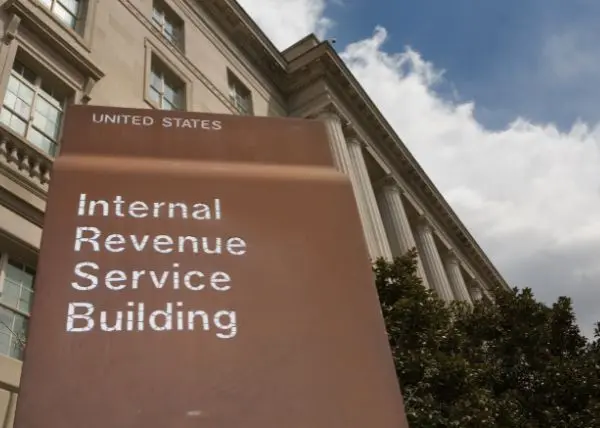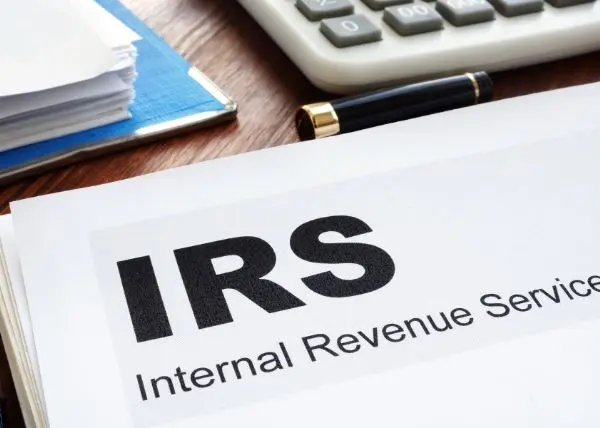Navigating the ERC Program Under IRS Scrutiny

In the wake of unprecedented economic upheaval spurred by the pandemic, businesses sought refuge in government aid programs like the Employee Retention Credit (ERC). However, what began as a beacon of hope soon became a labyrinth of compliance challenges, with the IRS ramping up efforts to scrutinize claims. At Candice Fields Law, we understand the complexities and anxieties accompanying IRS scrutiny, especially when navigating the intricate landscape of ERC compliance. Our mission is clear: to serve as your steadfast ally, empowering you to safeguard your business's interests and navigate these turbulent waters confidently and clearly.
What is the Employee Retention Credit Program?

The Employee Retention Credit (ERC) program was a government initiative to provide financial relief to businesses affected by the COVID-19 pandemic. It was introduced as part of the Coronavirus Aid, Relief, and Economic Security (CARES) Act in March 2020 and underwent subsequent modifications and extensions.
The ERC allowed eligible employers to claim a refundable tax credit against certain employment taxes for qualified employee wages. The credit was designed to encourage businesses to retain employees on their payroll during economic uncertainty and disruption caused by the pandemic.
To qualify for the ERC, businesses had to meet specific eligibility criteria, including experiencing either a full or partial suspension of operations due to government orders related to COVID-19 or a significant decline in gross receipts compared to the same quarter in a previous year.
The amount of the credit varied depending on the size of the employer and the wages paid to employees during the eligible period. Initially, the credit covered up to 50% of qualified wages, capped at $10,000 per employee for all quarters combined in 2020. However, subsequent legislative changes increased the credit rate and expanded eligibility criteria, making it more accessible to a wider range of businesses.
Overall, the ERC program served as a crucial lifeline for businesses grappling with the economic fallout of the pandemic, providing financial support to help them retain employees and weather the challenges posed by COVID-19.
What Were the Challenges with ERC for Business Owners?
Business owners faced several challenges with the Employee Retention Credit (ERC) program, despite its intention to provide financial relief during the COVID-19 pandemic. Some of the key challenges include:
Complexity of Eligibility Criteria
Determining eligibility for the ERC was complex and often confusing for business owners. The criteria included requirements such as experiencing a significant decline in gross receipts or a full or partial suspension of operations due to government orders related to COVID-19. Navigating these requirements and understanding whether their business qualified for the credit posed a challenge for many owners.
Changing Legislation and Guidance
The ERC program underwent several changes and updates as new legislation was passed and IRS guidance evolved. Keeping up with these changes and understanding how they impacted eligibility and the amount of the credit was challenging for business owners, especially those without access to legal or financial expertise.
Administrative Burden
Applying for and claiming the ERC required businesses to gather and submit extensive documentation, including payroll records and financial statements. Compiling this information and navigating the application process was a challenge for many owners, particularly those with limited resources or personnel.
Timing Issues
The timing of when businesses could claim the ERC also posed challenges. Some businesses faced delays in receiving the credit, leading to cash flow constraints and uncertainty about when they would receive much-needed financial relief.
Interaction with Other Relief Programs
The ERC's interaction with other COVID-19 relief programs, such as the Paycheck Protection Program (PPP), also presented challenges for business owners. Understanding how participation in one program affected eligibility or benefits under another program required careful consideration and planning.
Compliance and Audits
Ensuring compliance with ERC requirements and preparing for potential audits by the IRS added another layer of complexity and concern for business owners. The risk of penalties or recapture of improperly claimed credits created additional stress and uncertainty.
How is the IRS Going After Business Owners?
In the ever-evolving landscape of tax compliance, business owners are increasingly finding themselves under the IRS's microscope, particularly regarding the Employee Retention Credit (ERC) program. We approach the IRS's enforcement efforts critically, recognizing the potential for government overreach and the importance of safeguarding client's rights.
Audits
The IRS's audits of ERC claims are cause for concern, as they often entail invasive scrutiny of businesses' financial records and operations. While the IRS purports to conduct these audits to ensure compliance with program requirements, there is a legitimate fear that they may be overstepping their bounds and unfairly targeting certain businesses.
Data Analysis
The IRS's reliance on data analysis techniques to identify potentially fraudulent ERC claims raises red flags about the accuracy and reliability of its findings. Without proper oversight and transparency, innocent businesses may be erroneously flagged for further investigation based on flawed or incomplete data analysis.
Promoter Investigations
The IRS's investigations into ERC promoters and preparers further underscore the government's aggressive stance on enforcement. While there may be legitimate cases of fraudulent activity warranting investigation, there is also a danger of unfairly targeting individuals or organizations who may have simply provided guidance or assistance to businesses navigating the complexities of the ERC program.
Civil Enforcement Actions
Business owners facing civil enforcement actions from the IRS must be prepared to defend themselves against allegations of noncompliance or fraud. However, the government's track record of heavy-handed tactics and draconian penalties raises concerns about the fairness and impartiality of these proceedings.
Criminal Investigations
In the most egregious cases, the IRS may initiate criminal investigations and pursue criminal charges against business owners or individuals suspected of tax fraud related to the ERC. While there is a legitimate need to address willful misconduct, there is also a risk of government overreach and prosecutorial abuse in these cases.
How Candice Fields Law Can Help
At Candice Fields Law, we understand the complexities and anxieties that arise when facing IRS scrutiny, especially concerning Employee Retention Credit (ERC). Our mission is clear: to stand as your unwavering advocate, ensuring your rights and interests are safeguarded throughout the process.
Guidance Through Legal Labyrinths
Navigating the IRS's intricate compliance landscape can be daunting. However, with our experience and guidance, you can rest assured that you're not alone in this journey. From deciphering the nuances of the ERC Voluntary Disclosure Program (VDP) to strategizing withdrawal options, we provide comprehensive legal counsel tailored to your unique circumstances.
Defense Strategies Tailored to Your Needs
Every case is unique, as are the defense strategies required to safeguard your rights. Whether you're facing allegations of erroneous claims or grappling with IRS audits, we meticulously craft personalized defense strategies designed to mitigate risks and protect your reputation and livelihood.
Championing Your Rights Against IRS Overreach
While purportedly aimed at curbing fraudulent practices, the IRS's compliance efforts often encroach upon the rights of innocent businesses. As your advocates, we fiercely challenge any instances of overreach, demanding transparency, fairness, and accountability in every interaction with the IRS.
Leveraging Legislative Advocacy for Your Benefit
The ever-evolving legislative landscape surrounding the ERC can be daunting. However, with our finger on the pulse of congressional deliberations, we ensure your voice is heard in shaping policies that directly impact your rights and interests. Together, we can advocate for legislative reforms that promote fairness and equity in IRS enforcement practices.
Empowering You with Knowledge and Confidence
Knowledge is power, especially when confronting IRS compliance challenges. We empower you with comprehensive information about your rights, obligations, and available legal avenues, enabling you to make informed decisions confidently and at every step.
Facing IRS Scrutiny Under the ERC Program? Candice Fields Law is Here to Defend Your Rights.
Don't navigate the complexities of the IRS alone. Our experienced legal team at Candice Fields Law, PC has experience in defending your rights and ensuring you receive the guidance and representation you need. With a proven track record of successfully handling IRS disputes, we are committed to helping you secure the best possible outcome. Schedule a consultation today to discuss your case and learn how we can assist you in dealing with the ERC program's challenges.





